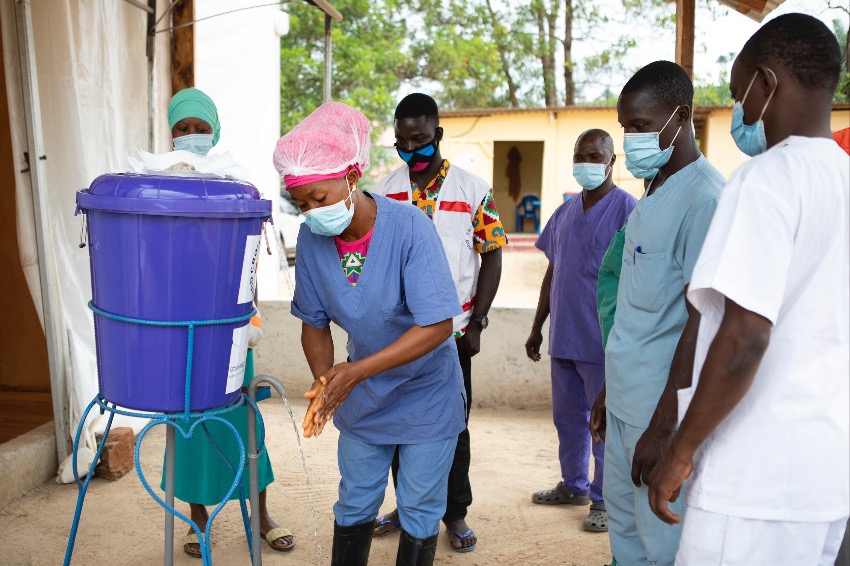An ambitious budget for EU external aid: will the EU walk the talk and leave no one behind?
Following long negotiations and numerous delays, the regulation establishing the Neighbourhood, Development, and International Cooperation Instrument – Global Europe (NDICI-Global Europe) has finally entered into force. It is now the main financial instrument for the EU’s external action, with an overall allocation of EUR 79.5 billion from the 2021-2027 Multiannual Financial Framework (MFF).
NDICI-Global Europe simplifies and consolidates all previously existing financial instruments related to the EU´s development and international cooperation work into one main tool, subject to the scrutiny of the European Parliament. It consists of three main components: 1) the geographical pillar – by far the largest component, will address country and regional specificities and include programmes aimed at strengthening cooperation in areas like good governance, climate change and migration; 2) the thematic pillar – concerned with issues linked to achieving the Sustainable Development Goals (SDGs) at global level; and 3) the rapid response pillar – a more flexible tool to react to unexpected events and emerging crises. NDICI-Global Europe will be the means for the EU to advance priority issues in its international cooperation. Its implementation must respond to the needs of the most vulnerable people around the world, especially with regards to the critical current global health situation.

COVID-19 continues to be a challenge to health systems around the globe and accentuates existing inequalities according to socio-economic conditions, gender, and mobility, amongst others. The pandemic has shown that reinforcing health systems is not enough, NDICI – Global Europe should holistically mainstream health and well-being measures across all its thematic priorities, including climate change, food security and migration. This can be done by tackling the root causes of existing health inequalities, and developing safe, efficient, and affordable vaccines, medicines, and treatments.
Given the disproportionate impacts of climate change on the world’s most vulnerable people, the EU’s commitment to dedicating 30% of the NDICI – Global Europe’s budget to actions related to the climate and environmental crises is an important step forward. However, multi-risk approaches to climate change adaptation and mitigation should be prioritised, while helping communities to better respond to and recover from shocks and hazards. Prevention and preparedness measures are indispensable in the face of increasingly complex crises with overlapping risks, including natural hazards, man-made threats, migration flows, and health emergencies, such as epidemics or pandemics.
With an indicative 10% of the instrument´s financial envelope reserved for migration management and actions addressing the root causes of migration, there is a danger that funds will be deviated from development cooperation aims. It remains to be seen how this provision will play out in practice, but NDICI – Global Europe support to non-EU countries should not be linked to migration and border control objectives. It is essential that the EU’s development cooperation continues to focus on poverty reduction, individual empowerment, as well as the promotion of the rule of law and human rights. To ensure needs-based interventions that serve to maintain the trust of affected communities, a principled approach to EU funding and programming needs to be enforced at all times.

As disasters caused by natural hazards and conflict pose a significant threat to sustainable development and peace, the EU’s humanitarian-development-peace nexus aims to promote synergies to respond to the complexities of increasingly recurring and protracted crises. The objective is to enable humanitarian actors to focus on acute needs and those in development to focus on long-term resilience, promoting peaceful and robust communities. In its implementation of the nexus, NDICI – Global Europe should strengthen context-based, bottom-up approaches by ensuring the meaningful participation of local actors. Affected communities and Civil Society Organisations (CSOs) must be engaged and supported to lead their resilience-building processes.
As the European Commission and the European External Action Service (EEAS), in dialogue with the European Parliament, work on the medium to long-term planning for each country, region and thematic programme, efforts should be made to involve local actors as the drivers of resilience strengthening in developing countries. They should be at the heart of the implementation, revision, and evaluation of the instrument to ensure sustainable development and community engagement. Promoting a multi-risk approach will also be critical to ensuring that all the possible consequences of climate change are taken into account. Moreover, EU development cooperation towards third countries must not be made conditional on their willingness or ability to collaborate in migration control and other border management measures.
Over the next seven years, NDICI – Global Europe can be a key tool to further the objective of poverty eradication and the advancement of the SDGs at global level. The IFRC and National Red Cross and Red Crescent Societies are ready to contribute to its implementation and revisions to ensure that the instrument reflects the needs and priorities of local communities and leaves no one behind.
For media inquiries, please contact Eva Oyón on: eva.oyon@redcross.eu or +32 2 235 09 22

